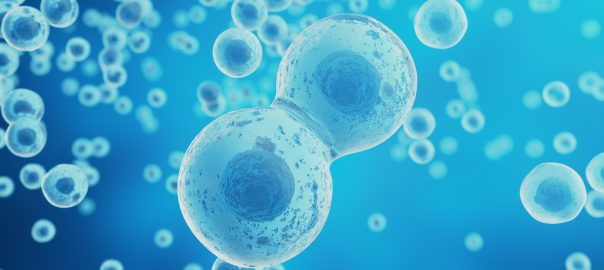The possibilities for synthetic biology are numerous. It could play a key role in resolving global environmental challenges that policy makers and regulators are struggling with. It could make industry less polluting, more sustainable and likely more profitable. This is especially true for companies with large ecological footprints who are working to decarbonise. The chemical industry could also change drastically as new forms of life could be designed to produce chemicals that otherwise would have to come from unsustainable sources like petrol.
Plastic pollution could likely become a thing of the past if replaced with bio-based instead of oil based polymers. Cheap, clean ‘next generation’ biofuels are also a major prospect that would help countries succeed in phasing out petrol based fuels altogether. Politically speaking this will take time as oil is likely not to be replaced overnight by sustainable alternatives, but synthetic biology is without a doubt a major player in energy and decarbonisation for multiple reasons.
Imagine for a moment:
- large‐scale bioremediation strategies to capture CO2
- improving the capacity of marine microorganisms to degrade plastics in the environment
- cheaper more efficient industrial systems of production that result in energy savings, less toxic waste and less chemicals
Microbes could be used to produce almost any chemical we want, such as polymers for cheaper bioplastics, which are derived from biomass such as vegetable fats and oils. Think microorganisms designed to enhance anaerobic digestion too. Many have already been designed and are used to generate materials like polyester, environmentally friendly packaging, medicine and smart materials.
Synthetic biologists are not really biologists in the traditional sense of the term. They are actually engineers but not the molecular or genetic kind, instead they have more varied backgrounds in computing, electronics, electric engineering, and are interested in building entirely new forms of life, instead of simply tweaking existing ones. With numerous environmental pressures that are challenging global society to live in different ways, synthetic biology may have many of the tools to build a sustainable planet for generations to come, or at the very least keep us from moving too close to the threshold of extinction.
Interdisciplinarity, or the integration of multiple disciplines towards a common set of research goals, involves researchers sharing each other’s sets of expertise and knowledge and applying them in their own fields. Engineers often have the skills or practical knowledge but benefit from scientists who have valuable insights into nature to understand the problems they are addressing at multiple scales.
A challenge that could benefit from interdisciplinary research is understanding how biological systems from synthetic biology will actually behave in their environment, as at present it is difficult to say what impacts they would have and whether they are always beneficial.
I’m sure there are none too many ecologists who wouldn’t get a little twitchy about the idea of synthetic life forms entering an ecosystem without some form of guidance or restriction. Yet they probably would entertain the proposal of using synthetic microbes to save species that are made vulnerable due to soil depletion, deforestation or climate change.
If ‘team humans’ are changing the planet at such a rapid rate that we are ‘moving around more sediment (silt, sand, gravel etc) than all the rivers, ice sheets and desert winds in the world combined’, as well as transforming the planet’s climate, then we need to make available multiple tools to secure the future of our species as well as others.
In the Anthropocene synthetic biology could be a boon for pollution clean-up, something that has yet to be resolved on a planetary scale, in some cases we are polluting more than restoring, and razing the planet’s rainforests more than restoring them, particularly in Brazil.
Before you say ‘wait a minute I’ve heard it all before, you overly optimistic technologists with your techno fixes and get out of environmental jail free cards’, synthetic biology does stand a real chance in helping to address heavy and light levels of pollution through bioremediation. Many of the things that don’t biodegrade in the environment can’t because there are no microbes that eat them. If new microbes were designed to do so it could change that quite radically.
Cleaning up pollutants, including micropollutants, is a potential large scale application for synthetic biology, especially in the wake of industrialisation in rapidly developing countries. The scientific and technological potential is certainly there, and the political and economic incentives too if decision makers, including citizens, are inspired to act.
So what does a synthetic biologist think about all of these applications and how did they end up working on them in the first place? I spoke with Dr Angel Goni-Moreno to find out. Angel is a computer engineer and lecturer in synthetic biology in the School of Computing. I learned about how synthetic biology works in practice and that the concerns Angel has for the future of the planet are similar to that of non-scientists.
*Drum Roll*
I give you the first of a series of ‘science perspective’ podcasts from a writer in the lab. Any questions are encouraged. Enjoy.
